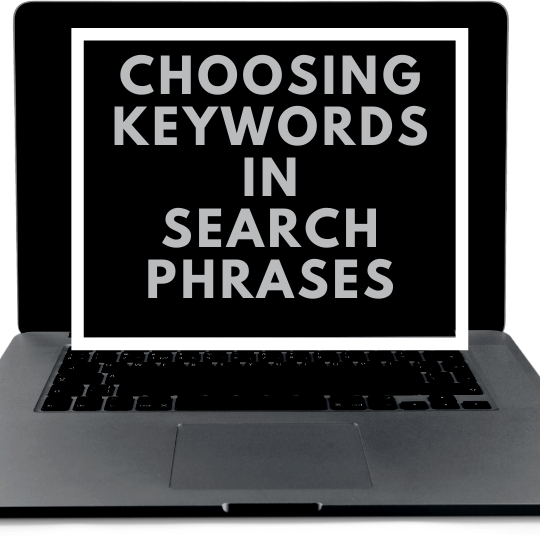SEO Freelancer Google Search Terms Advice
Here’s 4 reasons why you should not delve into SEO with misconceptions you can rank for a 2-keyword SEO competitive Search Phrase.- Websites already ranking on Google page 1, position 1 have been there for 10 years or more. If you have a new domain under 2 years old you’re effectivaly asking for the moon on a stick for a few hundred quid
- Domain age is important, it’s my job to manage your expectations. It’s easier to rank for longer phrases then when you have £pound signs in your eyes and think you’re going to be a millionaire Rodney
- Google has proven that there’s long tail search terms with ZERO CLICKS so it’s hugely important for you to target phrases that no one else would think of
- Particularly effective with eCommerce and brand new websites that are only a few months old
Keyword Choice and Google Search Insights - On page SEO
SEO Lady Consultant Contact Form
How Google Search Works
Every time you search, there are thousands, sometimes millions, of webpages with helpful information. How Google works out which results to show starts long before you even type, and is guided by a commitment to our users to provide the best information AKA ‘Relevance’
Even before you search, Google organises information about webpages in their Search index. The index is like a library, except that it contains more info than in all the world’s libraries put together.
Keywords, Search Terms and The Way You Say It
Meaning of your query
To return relevant results for your query, we first need to establish what information you’re looking for – the intent behind your query. Understanding intent is fundamentally about understanding language, and is a critical aspect of Search. We build language models to try to decipher what strings of words we should look up in the index.
This involves steps as seemingly simple as interpreting spelling mistakes, and extends to trying to understand the type of query you’ve entered by applying some of the latest research on natural language understanding.
For example, our synonym system helps Search know what you mean by establishing that multiple words mean the same thing. This capability allows Search to match the query ‘How to change a light bulb’ with pages describing how to replace a light bulb. This system took over five years to develop and significantly improves results in over 30% of searches across languages.
Freshest Results and Skyscraper Content
Just by publishing a 300-word blog post on a hot topic will disappoint. Going back to Google’s relevance, you will need to say the same thing in as many different keywords, descriptive words and phrases to appeal to every user who searches online. For stronger ranking signals you will need to write Skyscraper content of 1,000 words or more.
Search algorithms also try to understand what category of information you are looking for. Is it a very specific search or a broad query? Are there words such as ‘review’ or ‘pictures’ or ‘opening hours’ that indicate a specific information need behind the search? Is the query written in French, suggesting that you want answers in that language? Or are you searching for a nearby business and want local info?
A particularly important dimension of this query categorisation is our analysis of whether your query is seeking out fresh content. If you search for trending keywords, our freshness algorithms will interpret that as a signal that up-to-date information might be more useful than older pages. This means that when you’re searching for the latest ‘premiership scores’, ‘Strictly Come Dancing’ results or ‘Royal Mail Shares’, you’ll see the latest information.
Google’s Advice to Beginner SEO’s Looking To Learn The Basics
The crawling process begins with a list of web addresses from past crawls and sitemaps provided by website owners. As our crawlers visit these websites, they use links on those sites to discover other pages. The software pays special attention to new sites, changes to existing sites and dead links. Computer programs determine which sites to crawl, how often and how many pages to fetch from each site.
We offer Search Console to give site owners granular choices about how Google crawls their site: they can provide detailed instructions about how to process pages on their sites, can request a recrawl, or can opt out of crawling altogether using a file called ‘robots.txt’. Google never accepts payment to crawl a site more frequently – we provide the same tools to all websites to ensure the best possible results for our users.
Finding information by crawling
The web is like an ever-growing library with billions of books and no central filing system. We use software known as web crawlers to discover publicly available web pages. Crawlers look at web pages and follow links on those pages, much like you would if you were browsing content on the web. They go from link to link and bring data about those web pages back to Google’s servers.
Organising information by indexing
When crawlers find a web page, our systems render the content of the page, just as a browser does. We take note of key signals – from keywords to website freshness – and we keep track of it all in the Search index.
The Google Search index contains hundreds of billions of web pages and is well over 100,000,000 gigabytes in size. It’s like the index in the back of a book – with an entry for every word seen on every webpage that we index. When we index a webpage, we add it to the entries for all of the words it contains.

